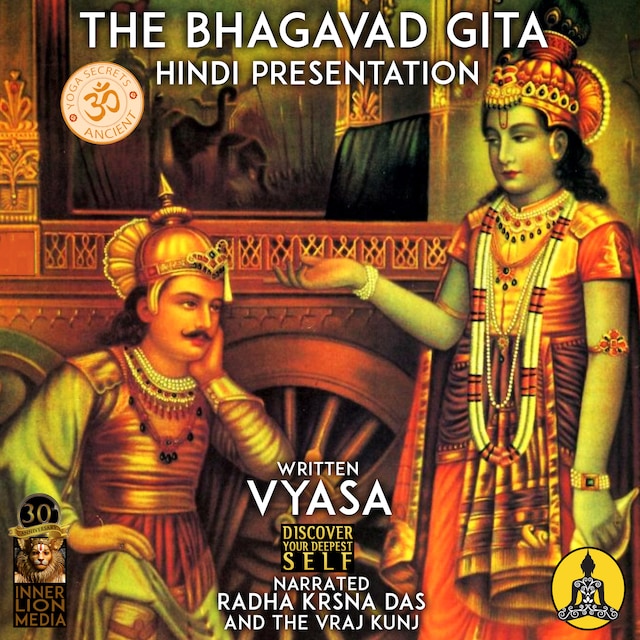
The Bhagavad Gita
Beskrivelse av boken
The original "Yoga Secrets of Patanjali" are in themselves exceedingly brief, less than 10 pages in the original ancient texts. Yet, as they are based upon the great, timeless Bhagavad Gita, they contain the essence of all practical wisdom, set forth in admirable order and great detail. This timeless theme brings forth a palpable spiritual regeneration, the rebirth of the spiritual from the psychical: the same sacred theme that the realized yogis of India so wisely and eloquently set forth over 5,000 years ago.
Vyasa is the legendary Indian sage who is credited with compiling the Mahabharata, a collection of legendary and didactic poetry worked around a central heroic narrative. In India his birthday is celebrated as Guru Purnima, on Shukla Purnima day in the month of Ashadha (June–July).
Vyasa was the son of the ascetic Parashara and the dasyu (aboriginal) princess Satyavati and grew up in forests, living with hermits who taught him the Vedas. Thereafter he lived in the forests near the banks of the river Sarasvati, becoming a teacher and a priest, fathering a son and disciple, Shuka, and gathering a large group of disciples. Late in life, living in caves in the Himalayas, he is said to have divided the Vedas into the four traditional collections, composed Puranas, and, in a period of two and a half years, composed his great poetic work, the Mahabharata, supposedly dictating it to his scribe, Ganesha, the elephant god.
Perfect for all students of the eight-fold yoga path, curious commuters, and all library and school collections. A once-in-a-lifetime audio experience event. Perfect for universities and digital educational media.


